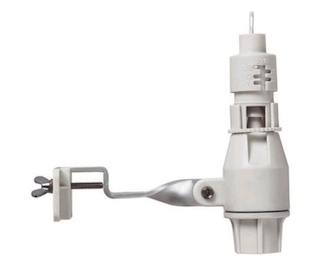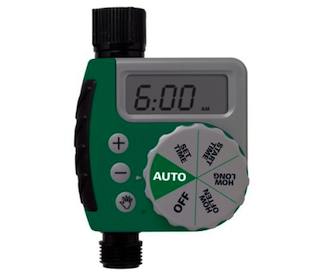Ways To Conserve Water In Your Landscape
It may not come as a surprise that outdoor irrigation can quickly become a household's greatest use of water. Watering lawns, gardens and landscaping, washing cars, and other activities can easily require large amounts of water, running into the tens of thousands of gallons.
While there's no denying the appeal of healthy, green outdoor spaces, most of use realize that unlimited watering isn't the smart thing to do; it costs money and ends up wasting a lot of our earth's most precious (and finite) resource.
There are many ways to manage your home's outdoor water usage. We'll examine just a few strategies here.
Ways to Conserve Water - Lawn Maintenance
A lawn full of thick green grass is by far the largest single use of water in an average household. Here are some ways to use less water while still being able to enjoy all the benefits of a healthy lawn.
- Don't Over-water: Most lawns need about one inch of water a week. Water early in the morning when temperatures and wind are the lowest; this allows more water to soak deep into the soil where it's needed. Watering later in the evening does the same thing, but a wet lawn overnight will encourage fungus and other lawn diseases.
- Water Deeply and Less Frequently: Watering a little bit every day is not as beneficial as less frequent, deeper watering. Lawns generally only need watering every five to seven days. Watering deeply and less frequently lets that water soak deep into the soil, encouraging deeper root growth, and healthier grass
- Work with Mother Nature: If your area is receiving natural rainfall, turn off the hoses and conserve water. Irrigating the lawn while it's raining is a pure waste of water, and will probably be giving the lawn more moisture than it needs. A good rainfall can eliminate the need for irrigation in a healthy lawn for up to two weeks.
- Buy a rain gauge: Don't guess how much water your lawn is receiving; an inexpensive rain gauge can tell you exactly how much moisture is going into the lawn, and when it might be time to irrigate.
- Concrete doesn't need water: Take the time to make sure your irrigation system or sprinklers are putting their water where it's needed, on the lawn. Over-watering onto sidewalks, driveways, and streets is like throwing money out the window.
- Install a rain sensor on your lawn irrigation system. These will turn off automatic sprinklers when adequate rainfall negates the need for watering. This is especially important if you've set the timer and you're away from home to eliminate watering during rainfalls.
A great way to use less water in the yard is to shrink the size of your grass lawn and plant more water-friendly landscaping that includes lots of drought-resistant, native plants and trees.
For other ideas on maintaining a environmentally-friendly, healthy lawn, see our lawn care articles.
No Mow Grass
Grass Alternatives
Drought Resistant Grass
Lawn Aeration
Drought Resistant Grass
More Ways To Conserve Water
While the lawn is typically the largest source of outdoor water usage, there are other ways to cut back:
- Consider a commercial car wash: While it may seem like a commercial car wash uses more water than doing it yourself, most modern car washes recycle a good portion of their water. If you do wash your own car, try to park it on the grass; this eliminates water runoff and doubles as free irrigation for your lawn. Use biodegradable car wash soaps, and use a shut-off nozzle on your hose so the water isn't running continuously.
- Don't leave hoses or sprinklers unattended: A garden hose can waste up to 600 gallons of water in just a few hours! Use a kitchen timer to remind you that it's time to turn off the sprinklers.
- If you have ornamental water features in your landscaping (like a fountain), make sure the fixture recycles its water rather than constantly requiring new water.
- Swimming pools are another huge source of water usage. Consider a newer water-saving pool filter, as older filters can use up to 250 gallons of water for a single back flushing.
Rainwater Harvesting: Collecting the rainwater from your home's roof can supply a great deal of your outdoor water. See our articles on rainwater harvesting for more information. Rain Water Harvesting
comments powered by Disqus





































































